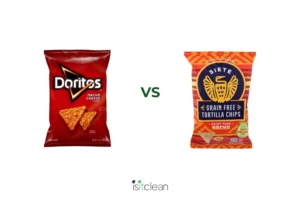
Acesulfame potassium is a zero-calorie sweetener that is added to many sugar-free…



Allulose is a relatively new sweetener found in various low-calorie or low-carbohydrate food products. It is a rare sugar that is found naturally in a few foods, such as wheat, figs, and raisins, but can also be produced through a process called enzymatic conversion of fructose. During this process, enzymes are used to convert fructose from beets or corn, into a syrup rich in allulose. The allulose is then separated from the syrup, purified, and dried into a crystalline powder. The resulting sweetener has the same taste and texture as sugar but with only 10% of the calories and 70% of the sweetness.

Research is limited on the safety of allulose as it is a newer sweetener on the market. It may be derived from GMO corn. However, allulose may help regulate blood glucose and insulin concentrations, increase fat oxidation, have favorable effects on body weight and composition, and even inhibit cancer growth.
Health is like a bank account, certain ingredients make a deposit into your health bank, meaning they add to
your health. Certain ingredients withdraw from your health bank. We want health promoting ingredients in our diet. To keep things simple, we rate ingredients on a green, yellow, red scale:

It is naturally occurring in food and has no harmful effects on the body. It is real food. It is health promoting.

It goes into one or more of the below categories

It is known to have a harmful effect on the body (ex. All food colorings, Natural Flavors, MSG, Potassium bromate, aspartame, artificial flavors)



The Food Showdown: Popcorners flavors
Ingredient Rating: Canola oil – is it bad for you?
Clean Consuming: Nourishment for your

We have accomplished so much in just 1 year since our launch in March of 2023! We now have 10,000

The Nacho Chip Food Showdown, is Tapioca Starch safe in food? and a must-see documentary on America’s food system.
Stay in the know with the latest ratings, articles, and our newsletter, The Dirt.